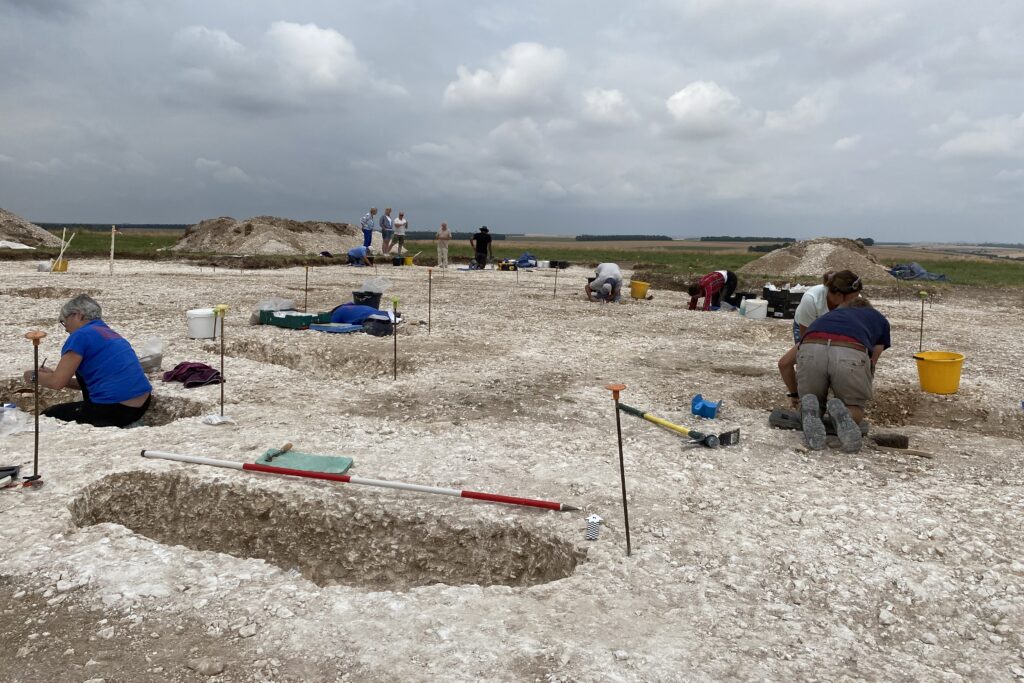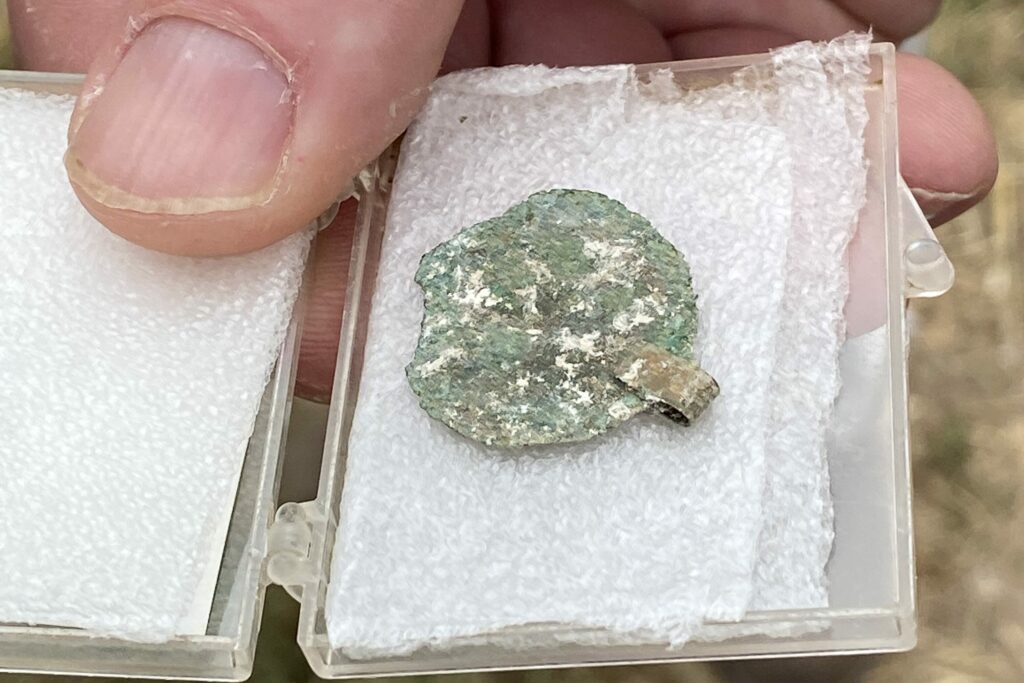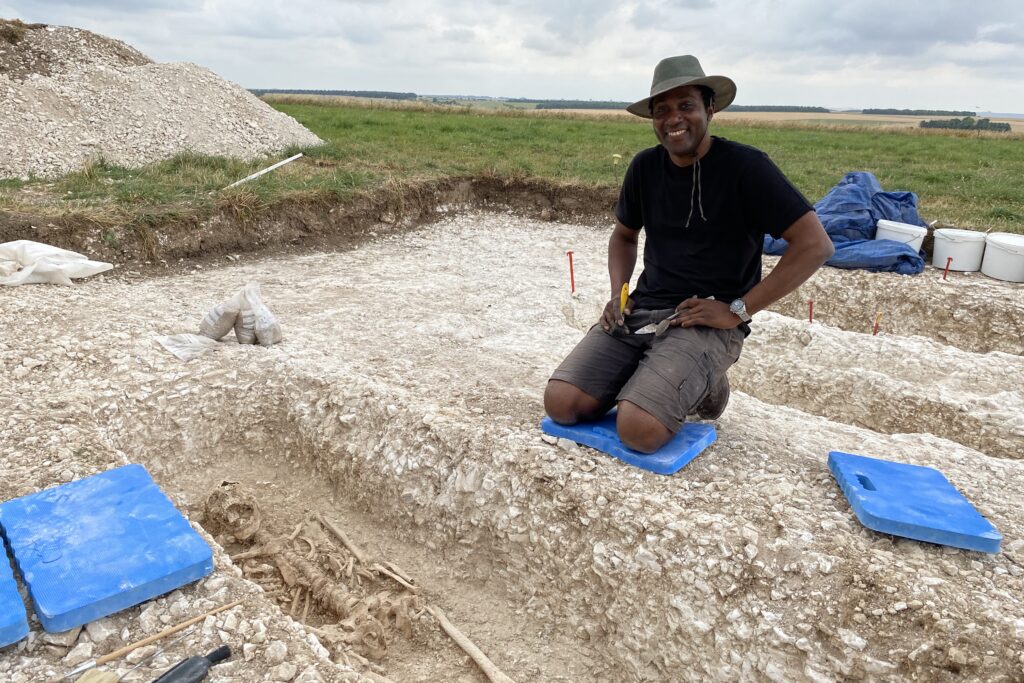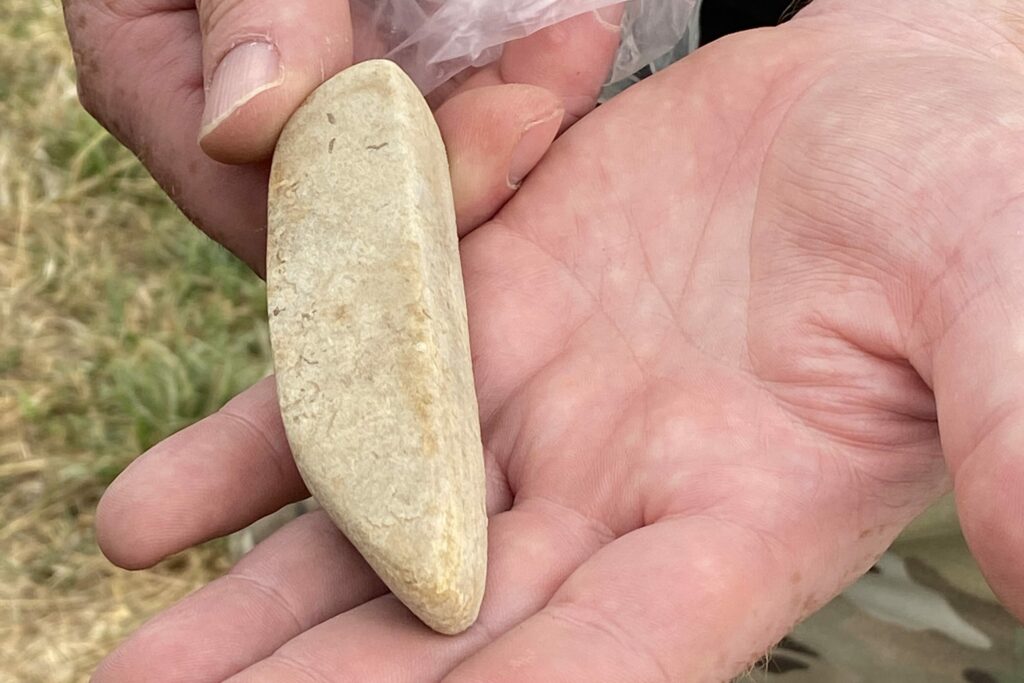
It’s always a real thrill and privilege to excavate with a group of military personnel, both serving and veterans, as well as other trained specialist and local volunteers.
The original concept behind these digs - to support the health and wellbeing of military personnel and veterans by getting them involved in archaeological investigations - is still very much the focus of these exercises today.
Owning around 1% of the UK mainland, the Defence estate holds a lot of the nation’s heritage. This work not only assists the wellbeing of participants but also contributes towards DIO’s commitment to the stewardship of the historic estate.
Excavating a Saxon cemetery
Last month we were out on Salisbury Plain on an exciting excavation of a 7th century Saxon cemetery and have uncovered around 26 burials in 22 graves. We have also had some really wonderful finds, including Roman coins, bronze and silver discs and a beautiful necklace made of glass beads.

The kinship is especially important for the military community. The military is like a family for many and if that is taken away abruptly, if something happens, then that’s a difficult thing. We’ve had soldiers digging with us who’ve been out to Iraq or Afghanistan, who have experienced trauma. We also work closely with the diversity networks to make sure we are representing the whole Army on these exercises and for me that sums up archaeology - it’s all about people. Understanding how they lived, the land they lived on and sharing that experience by how we live on the land today.

Cultural protection
As well has having a team of archaeologists and ecologists in DIO, there is also a dedicated Cultural Property Protection Unit in 77 Brigade which advises senior leaders on cultural heritage, ensuring it is preserved and protected in areas where conflict is taking place and the British military are involved. DIO aims to assist in part of this training process; something we were involved with in the campaigns in Afghanistan and Iraq.
The excavation sites selected for Op Nightingale are carefully chosen to meet the needs of the exercise. The wide vistas and sense of space provides a place to really switch off and we choose sites that we know will provide some interesting archaeology. The process of carefully uncovering the finds is part of the therapeutic process, it helps to focus the mind and provides a sense of achievement.
And this dig has not disappointed. We’ve found a 1400-year-old comb made of deer antler, pieces of Neolithic pots – around 5000 years old – even some structures on the site that could be Roman. One of the most interesting finds is a sharpening stone, we haven’t found one of those before!

There is a natural affinity with what we aim to achieve on Op Nightingale and archaeology – it’s all about humanity and exploring what it is to be human. There’s something deep about looking at where we have come from, there’s a connection and this allows us all to experience something bigger than ourselves. Being able to share that on these digs with military personnel who may be having a tough time is highly beneficial.
3 comments
Comment by Mount Machinery posted on
Thanks for sharing this amazing and insightful article.
Comment by Maj Pat Burgess MBE posted on
A great article that really shows the collaboration between Defence and DIO, and the benefits of the stewardship of the Defence Estate.
Comment by Tom Wilson posted on
Really interesting stuff here. We've had times where we were broke ground on burial sites as well, totally unintentionally. I actually wrote an article about on our site if you want to check it out https://www.modestoexcavationexperts.com/